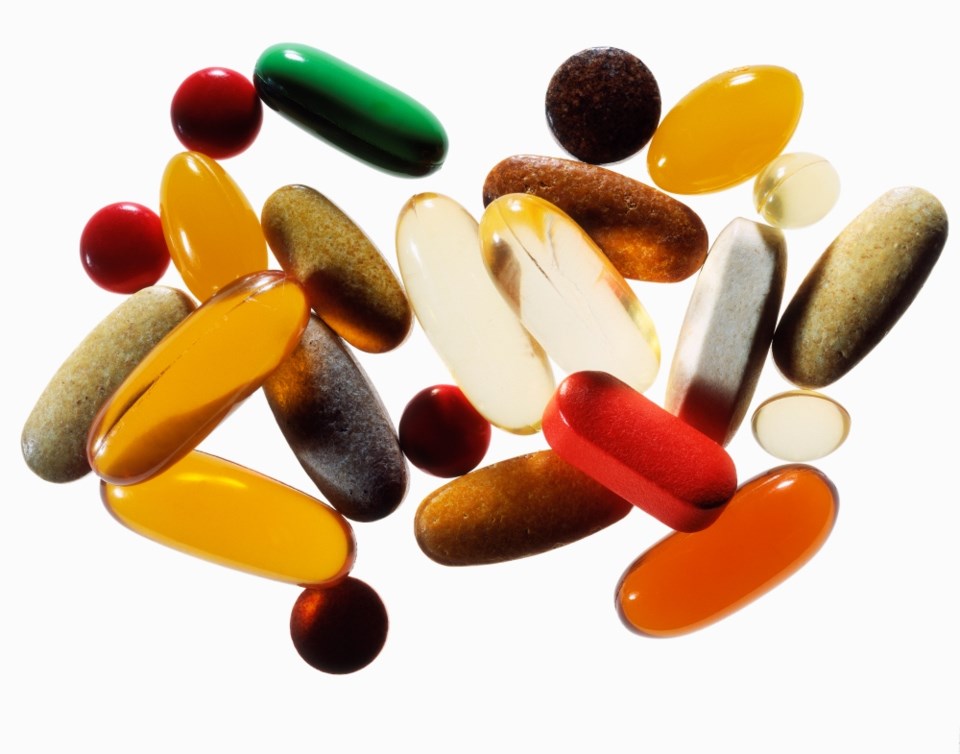Nutrient deficiencies are very common, even among people who believe they’re eating a balanced diet.
Your body depends on essential nutrients for growth, development and health maintenance, and deficiencies in certain vitamins can impact your immunity, vision, wound healing, bone health and much more
Vitamin D: An estimated 40 per cent of adults are deficient in vitamin D, while 13 per cent are severely deficient.
It’s now known that vitamin D is necessary not only for healthy bones but for health throughout the body. Vitamin D receptors are present all over the body, including in the intestine, pancreas, prostate and immune system cells. Vitamin D plays a role in numerous diseases, including: cancer, diabetes, acute respiratory tract infections, chronic inflammatory diseases, and autoimmune diseases such as multiple sclerosis.
The only way to gauge whether you might need to supplement, and how much to take, is to get your level tested, ideally twice a year, in the early spring and early fall, when your level is at its peak and low point.
Magnesium: It’s estimated that more than half the Canadian population may not be consuming enough magnesium.
You only need about 150-180 milligrams (mg) a day to prevent deficiency, but optimal levels are closer to the 600 mg/day level.
Dark green leafy vegetables are a good source of magnesium, and juicing your greens is an excellent way to boost your intake, although supplementation is likely necessary for most people.
Vitamin B12: Vitamin B12 plays a role in numerous biochemical reactions and neurological functions in your body. Your body can’t make vitamin B12 on its own, so it must be obtained via your diet or supplementation.
A deficiency can be serious and leads to a number of related changes, including personality disturbances, irritability and depression, along with a wide range of symptoms, including joint pain, “pins and needles” sensations, numbness and shortness of breath.
B12 is the largest vitamin molecule and as such has a hard time being absorbed by your body. Your stomach produces intrinsic factor, which combines with vitamin B12 so it can be absorbed in your lower small intestine. The problem is that as people age many lose the ability to produce intrinsic factor and are prone to developing vitamin B12 deficiency.
Regularly eating B12-rich foods, such as grass-fed beef liver, wild rainbow trout and wild sockeye salmon, is important to maintain adequate levels, but if you suspect you may be deficient, weekly B12 shots or a high-dose, daily supplement may be necessary.
Vitamin A: An estimated 51 per cent of adults are not consuming enough vitamin A, increasing their risk of degenerative diseases like macular degeneration.
People who eat foods rich in vitamin A, experience a reduced risk of developing squamous cell skin cancer.
Plant foods high in beta-carotene include sweet potatoes, carrots, cantaloupe and mangoes. Animal foods rich in vitamin A include liver, egg yolks and grass-fed butter.
Iodine: Nearly two billion people worldwide don’t get enough iodine in their diet. Your body uses iodine across several organ systems, but it is most commonly known to synthesize thyroid hormones.
Even moderately imbalanced thyroid levels may be associated with increased risk of metabolic syndrome and obesity
Foods that are naturally iodine-rich include spirulina, sea vegetables, prunes, raw dairy products, eggs and Himalayan pink sea salt. Eating these foods on a regular basis will help ensure adequate levels.


